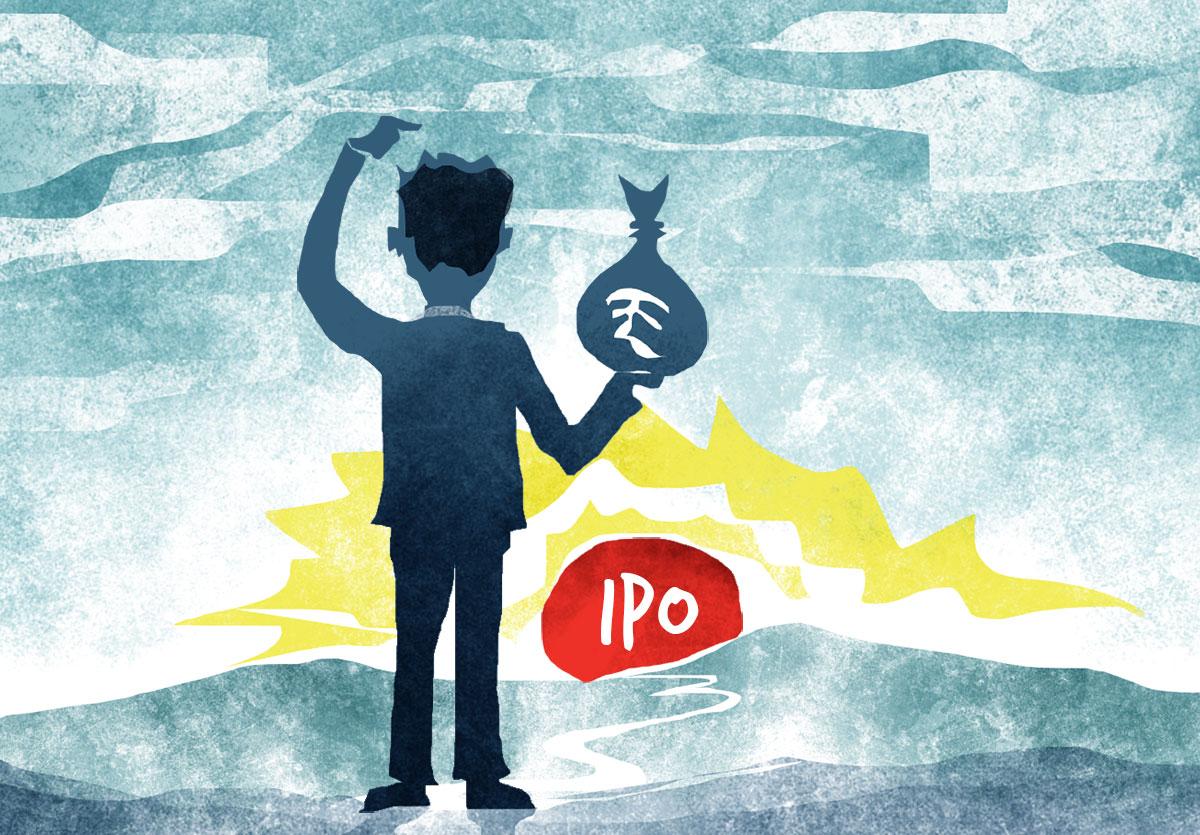The political economy of the IPO market involves regulators empathising with intermediaries, and designing a bridge that systematically takes wealth away from founders, VC and PE funds, and business houses, explains Ajay Shah.

The IPO is seen as the mandatory rite of passage for every firm that has graduated into the big league.
But many features of the Indian IPO market make no sense.
This has implications for investors, founders, funds and business groups.
The secondary market for equities is simple and logical.
Everyone is welcomed into one unified screen, and the order book generates the price.
Buyers, whether for one share or 1,000,000 shares, come together into one single screen.
From first principles in economics, we need a regulator to push for accuracy of disclosure and enforce against market abuse.
The market process works well, producing a fair price within a short period of time after new information unfolds.
We don't worry about helpless grandmothers buying shares on the secondary market at an unfair price. The efficient market protects the sheep from the wolves.
But one day before first listing, while the company is not yet traded, we change gears and view the transaction in a completely different way.
Does a whole lot change from May 1 to May 2, where an unlisted company of May 1 shows up on the secondary market for trading on May 2?
The main argument in favour of government control of the IPO process is that the reference price is not visible on a screen (as is the case after listing), so slick advertising can con grandmothers and dentists.
There is an easy way to address that: To have a high bar for the minimum value of an order in the IPO auction.
This will exclude unsophisticated investors.
As an example, in futures and options trading, it makes sense to have a minimum contract size of perhaps Rs 100,000 or Rs 200,000.
Once this is done, all we need is for firms to fully comply with the disclosure and governance regulations of listed companies for, say, six months before the IPO, and then they are ready to go into the pre-opening auction (9 am to 9:15am) just like any other security, with only one unusual requirement: A bigger market lot.
The pre-opening auction that works for a security that was last traded, say, yesterday, would work perfectly for an unlisted share.
Such an IPO process would get a decent price discovery, greatly reduce the costs of the IPO process (including IPO underpricing), and eliminate the stress that founders and funders go through in the months prior to the IPO.

Why do such simple things not come together? There is a unique political economy problem in the IPO market.
A raft of intermediaries earn fees in the IPO.
They have a sustained interest in getting regulators to devise procedures that are conducive to greater fees.
Founders generally face one or at the most two IPOs in one life.
They have no interest in thinking and speaking about the weirdness of the IPO market.
Each founder treats it as an episode of sickness, where they are involuntarily subjected to certain procedures by people in white coats, and then they move on.
Founders are the wealth creators. They are forced to cross a bridge in order to become a listed security, where a swarm of intermediaries grab some crumbs.
The intermediaries pound the corridors of regulators all the time, while the founders only dimly understand the political economy of regulation.
This is a problem in all countries. What is unique about Indian socialism is that regulators exert complete control of the IPO process.
As an example, when Google went public in 2004, the founders innovated and came up with an IPO procedure which made more sense to them.
Under Indian socialism, they would have no such flexibility.
Intermediaries in India are able to harness Indian socialism, and introduce ever more details, through which the IPO is an obstacle course that generates greater payments to intermediaries.
What is to be done? From an investors point of view, there is some evidence of excess returns from buying at the IPO and selling off immediately.
We can think of this profit as being the payment for the attention and practical friction associated with going through these steps.
From the viewpoint of sustained portfolio performance, there is no difference between buying after the listing as opposed to buying at the IPO.
For anyone who desires to add a security into the portfolio for a longer time horizon, the secondary market is the place where the security is obtained at roughly the same price with less practical overhead.
Many people are disappointed that they did not get the share in an IPO, but fail to follow through by purchasing immediately after the listing.
If you were willing to pay about Rs 100 at the IPO, you should surely be willing to pay roughly the same price after the IPO.
The risk and reward of newly listed companies is similar to that obtained from their size and risk peers.
These tend to naturally be smaller and riskier companies when compared with the firms in Nifty or Nifty Junior.
If investors are not systematically occupying this locale, based on views about risk and return, they are not consistent with their investments in IPOs.
For companies that are going for IPO, two pathways merit examination.
A sale or merger into an existing listed company is a way to get to listed status without crossing the bridge that is swarming with intermediaries.
An IPO abroad is easier than in India. It would establish a reference price, which would reduce the complexities of the IPO process in India.
The political economy of the IPO market involves regulators empathising with intermediaries, and designing a bridge that systematically takes wealth away from founders, VC and PE funds, and business houses.
This political economy is a bit like insider trading regulation, where financial regulators help employees of financial firms at the expense of employees of non-financial firms.
The funds and the business houses are repeat customers of the IPO market and have an incentive to exert countervailing pressure in the political economy.
Ajay Shah is a researcher at Pune International Centre.
Feature Presentation: Rajesh Alva/Rediff.com











